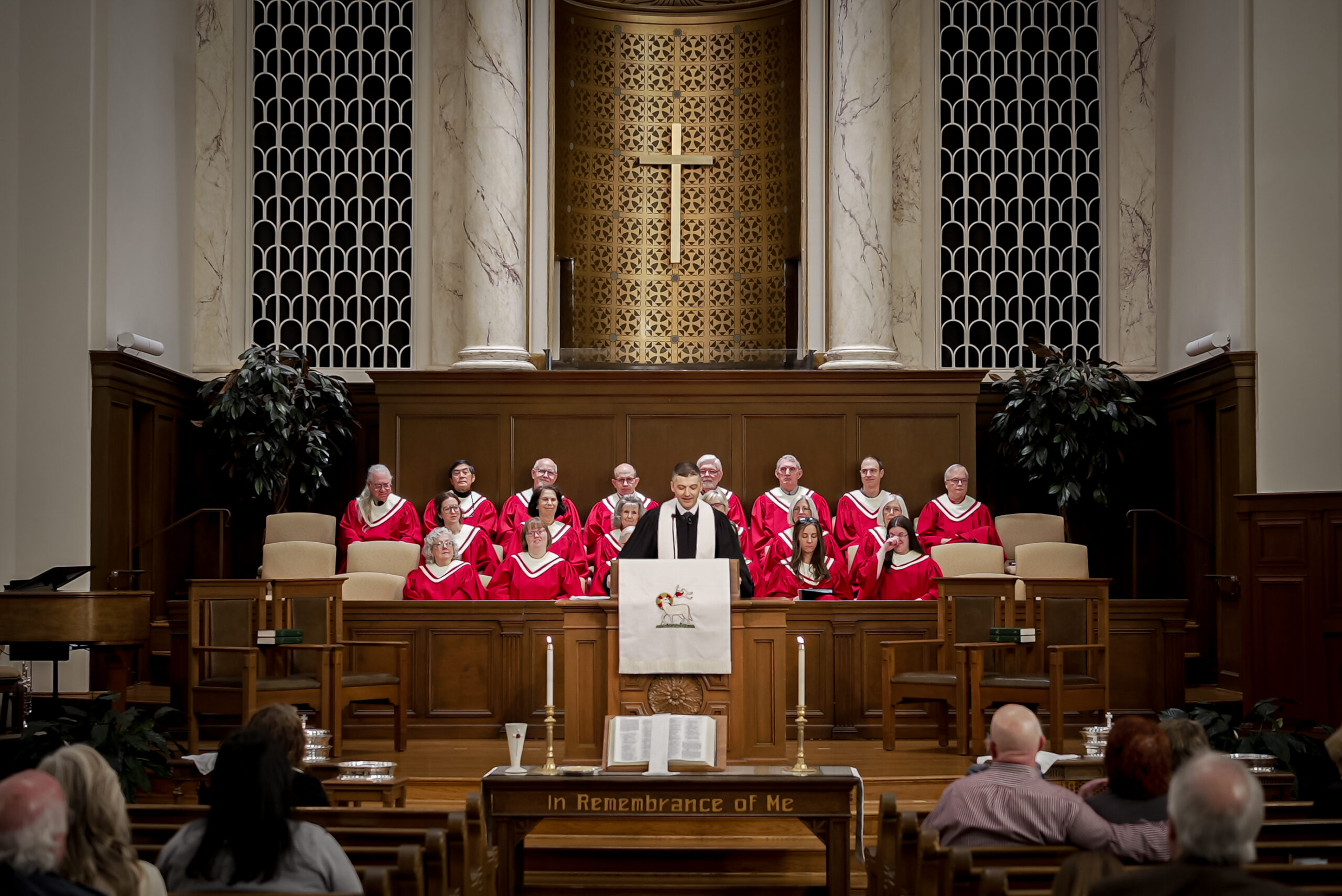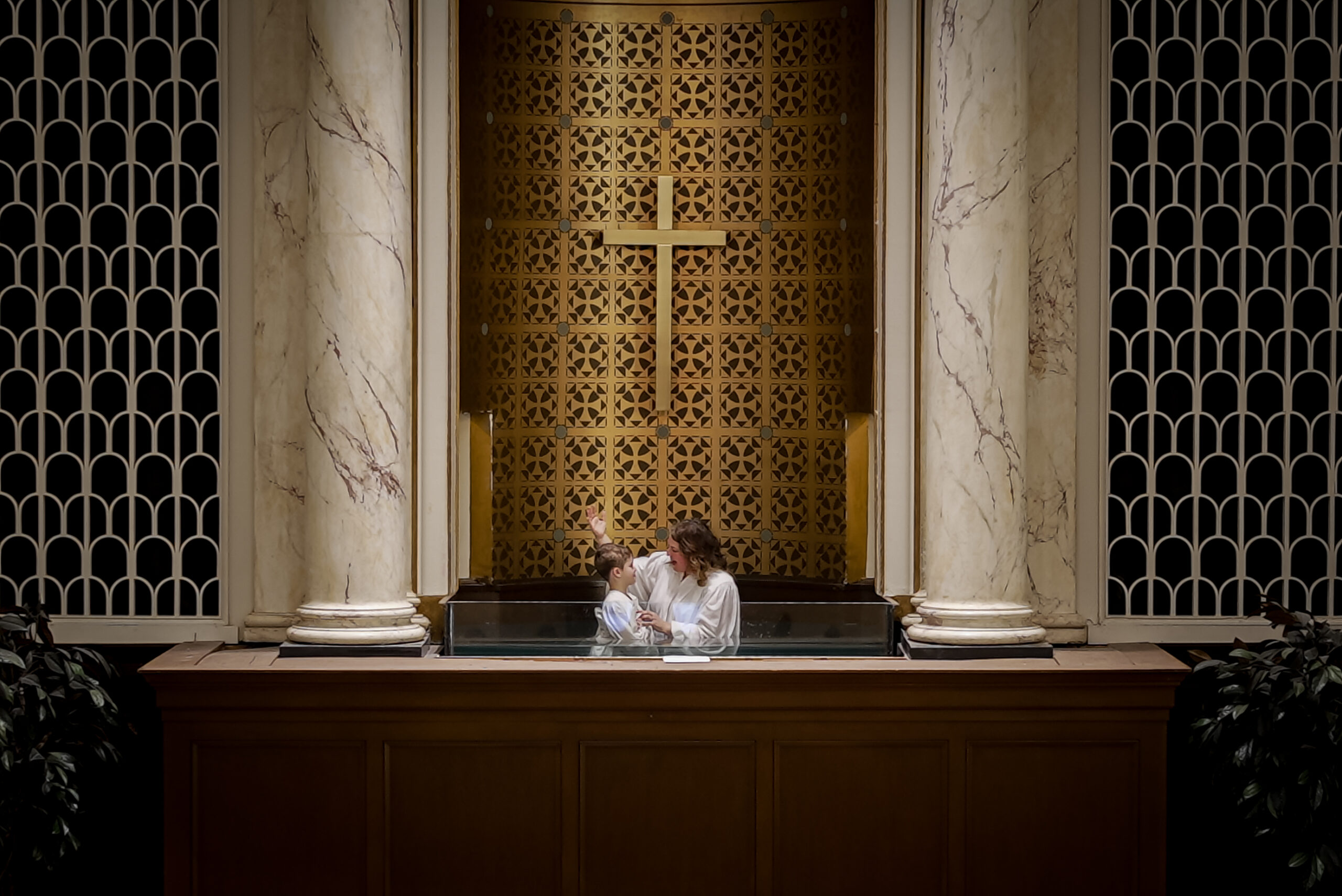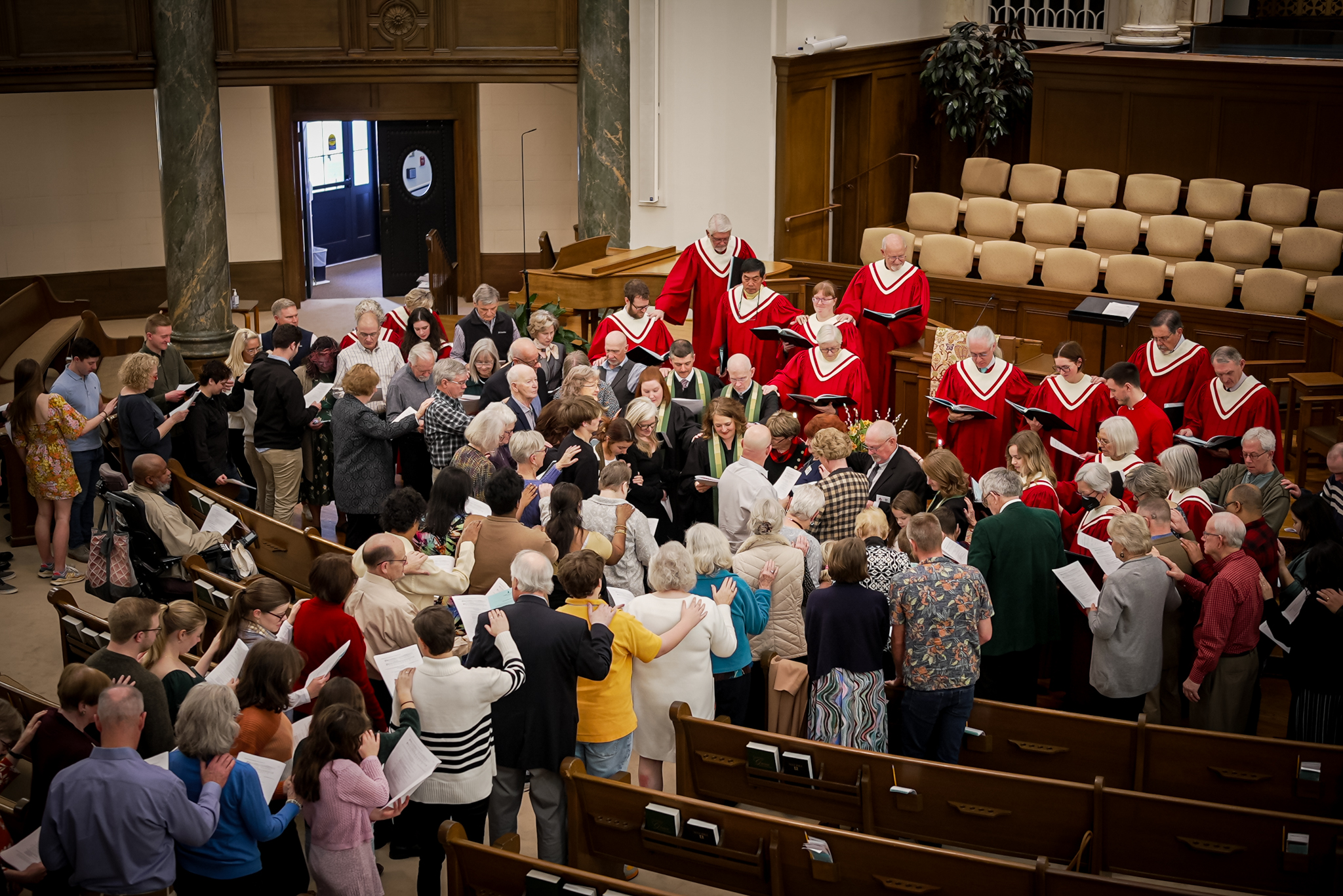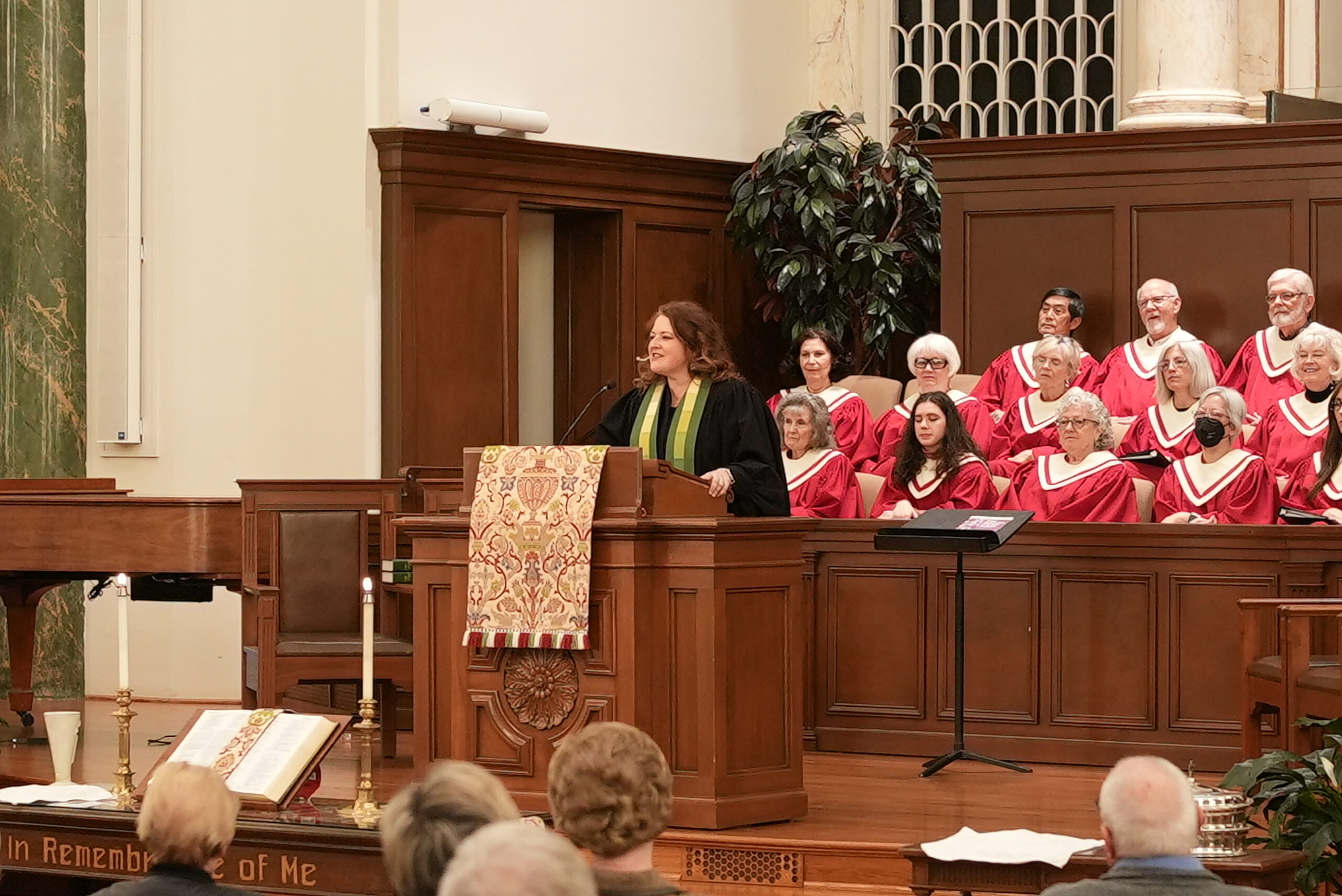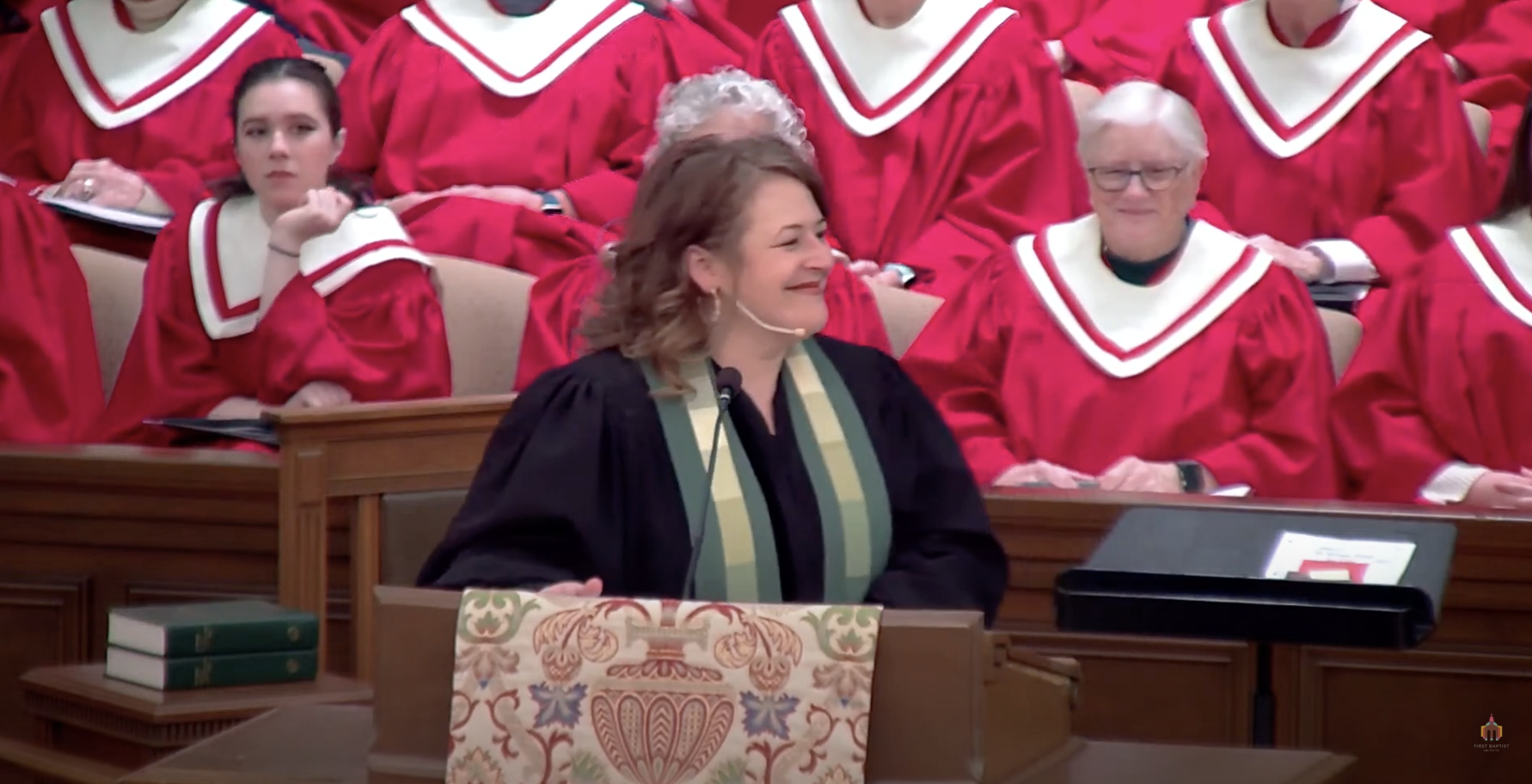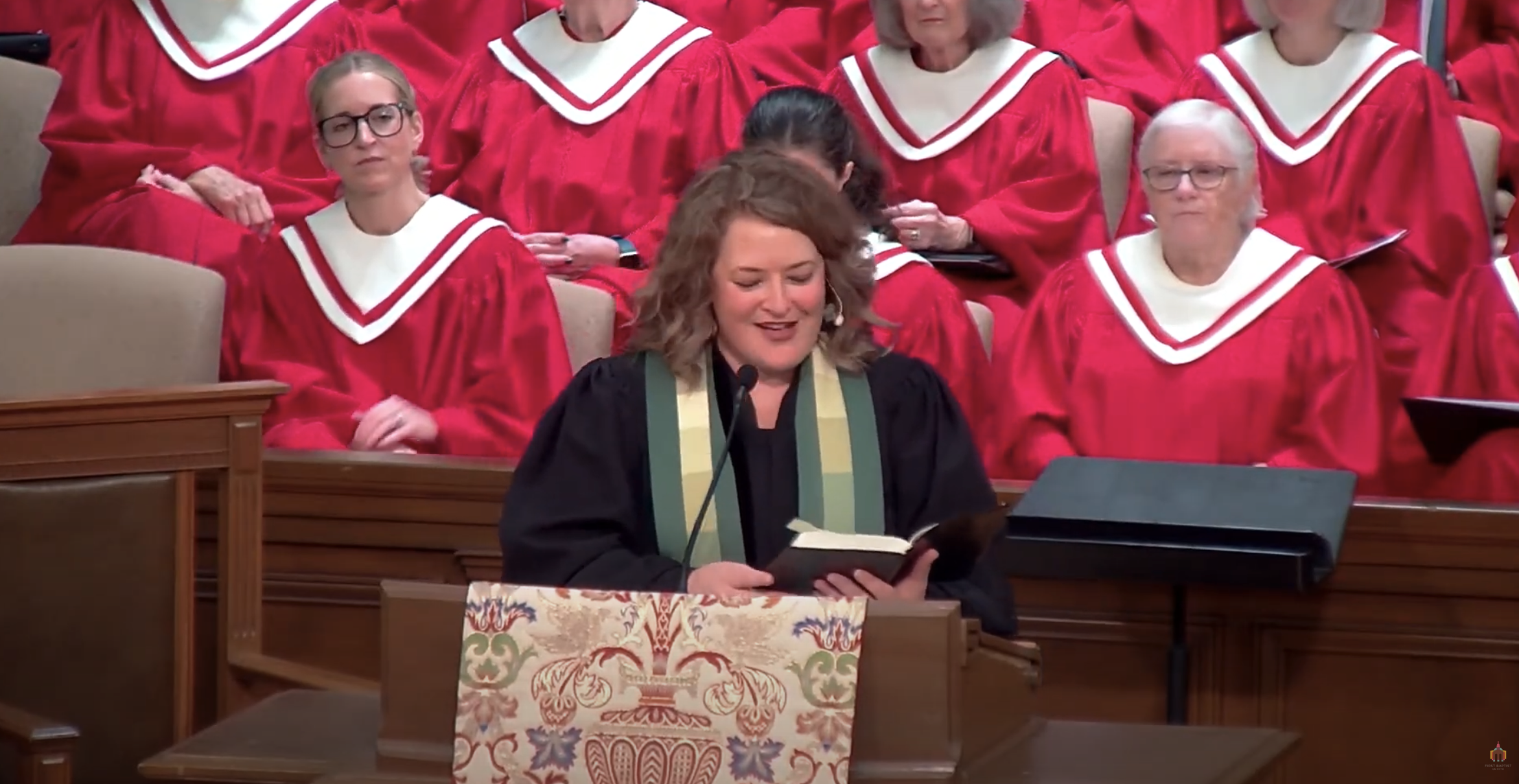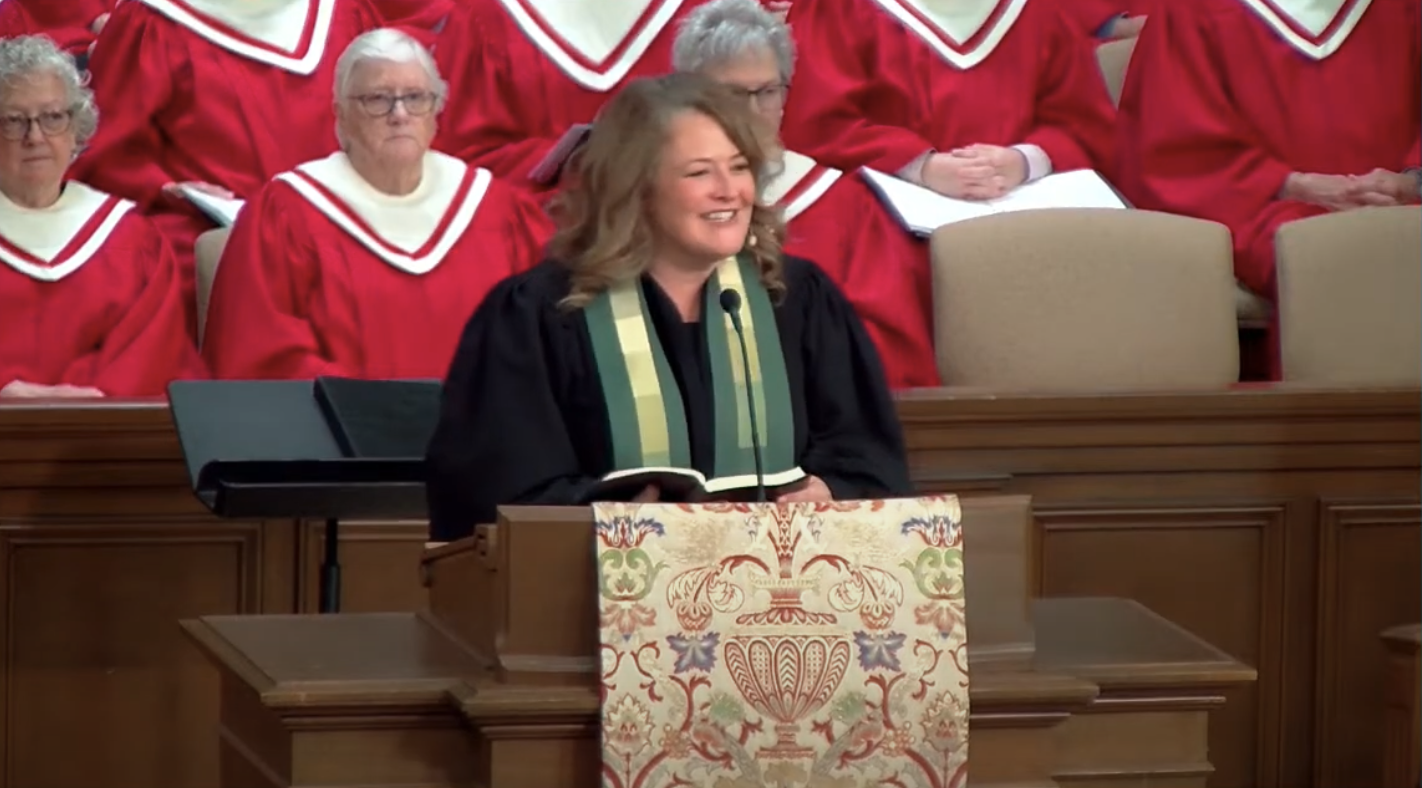I.This was one of those weeks in sermon preparation when the plan didn’t unfold as I might have expected, a week where the Spirit didn’t move according to print deadlines for the bulletin! Where you see my sermon title labeled “The Good Life: Blessed,” I’ll alter a bit for today. We’re still talking about the “good life” – the good life Jesus led, and the good life he calls us to live – but my subtitle today will be “leveled” instead of blessed.
II.Of all the gospel writers, Luke has a powerful bent towards leveling, equalizing, making the way to God in Christ accessible to Jews and Gentiles, men and women, slave and free, poor and rich. He stands in the great biblical tradition of the prophets who understand how God alters the human landscape: like Isaiah announcing, “the uneven ground shall become level, and the rough places a plain,” or Ezekiel’s famous “valley” or “plain” of dry bones that God restores to life. We heard it Luke in Mary’s song of praise — bringing down the powerful and lifting up the lowly. We saw it in the announcement of the greatest news that came to a crew of dirty shepherds working the night shift in the middle of nowhere. We imagined it as John the Baptist painted a picture of the One to come where valleys are filled and mountains are made low. We felt it in Jesus’s first sermon to the hometown crowd in Nazareth, proclaiming release to the captives, sight to the blind, freedom to the oppressed, and jubilee to all who are crushed in debt. And it strained our backs last week, as Simon and James and John felt scarcity then abundance in their nets, laying them down to follow their Lord. In other words, as Luke tells it, Jesus is down and dirty: he walks, and heals, and teaches in the valleys and on the plains, meeting us exactly where we are.1 Last, first; first, last; this upside down kingdom of God.
That’s the context we must understand when we turn to today’s gospel passage, where Jesus, having now a measure of fame and reach in the region, comes to the crowds to teach and restore. Luke says they came from all over, from Judea and Jerusalem, which were centers of Jewish life, and from Tyre and Sidon, which were lands filled with Gentiles and all sorts of others. From here and there and everywhere, the people were nearly as hungry for hope and healing as they were for sustenance of their daily bread. The crowds were filled with the have and the have nots, the sick and the well, the disciples and the doubters.
And to them all, Jesus “came down with them,” Luke said, “and stood on a level place.” For Luke, this geographical detail is key. For the words that followed would sound a great deal like what we call the Beatitudes from the Gospel of Matthew. There as is here, these words of blessing began a stretch of scripture commonly called Jesus’s sermon. In Matthew, we call it the “Sermon on the Mount.” But here in Luke, we call it the “Sermon on the Plain.”
While Matthew was keen to connect the dots between Jesus and Moses, Luke was not. Where Matthew made clear to the descendants of the Israelites that Jesus of Nazareth was their long-promised Messiah by positioning Jesus high atop a mountain, lest the symmetry be overlooked — elevated in nature and by nature from the crowds he came to save – Luke’s Jesus is the Great Equalizer, the one who came down from the mountain to stand with his people on the level place. By looking them in the eyes, putting his hands on their shoulders, attending to their physical needs, Jesus speaks plainly on the plain to deliver good news that changes everything.
But you might say these blessings that Jesus pronounced sounded nothing like the good life. Blessed are the poor, the hungry, the weeping, the hated? More like the worst life, right? Who wants to be poor, hungry, sad, or sidelined? Perhaps he’s just being metaphorical?, we wonder.
Father Greg Boyle likes to say that the Beatitudes’ original language was not ‘blessed are’ or ‘happy are’…but that the most precise translation is ‘You’re in the right place if.’ “You’re in the right place if.” “I like that better,” he says. “For it turns out the Beatitudes is not a spirituality. It’s a geography. It tells you where to stand.”.2 Jesus says, “You’re in the right place, you’re favored and honored, I see you when you’re poor or hungry or weeping or reviled. I look you in the eye, I call you by name, I meet you where you are, I come with and to you to set you free.” These aren’t directives, like “love your enemies,” or “pray for those who persecute you” are. They’re just statements, perhaps statements of orientation to the world, the lay of the land, if you will. Or as one writer says, “the beatitudes do not tell us what to do. They tell us who we are, and more importantly, they tell us who Jesus is.”3
This is why Latin American theologians like Gustavo Guttierez declare that Jesus has a “preferential option for the poor.” When Jesus said “Blessed are the poor,” Gutierrez points out, he does not say, “Blessed is poverty.”4 But Jesus does make clear that he is uniquely located among the least of these. The poor and powerless are distinctly blessed, favored, honored by God, and the rest of us would be wise to pay attention.
And what about the rest of us? Those of us who find ourselves more among the woes? Woe to you who are rich or full or laughing or well thought of by others. These woes don’t show up in Matthew’s gospel, and they’re as blunt as they are clear. Just like Luke doesn’t spiritualize where Matthew does – talking of “the poor” instead of the “poor in spirit,” or “the hungry” instead of “those who hunger for righteousness” – Luke doesn’t beat around the bush. For the very material things, or “blessings” most cherished by some are the very liabilities that may do them spiritual harm.5 The place of their (or our) perceived favor might be the very place of their (or our) discontent.
III.So I wonder: beyond blessing or woe, what place do you find yourself in right now?
Maybe you’re in an anxious place. The woes of this world are staggering, and the needs within you and around you send you spiraling far more times than you care to admit. You are just so scared of what tomorrow will hold, that you can’t look away from the news, the feeds, the opinions; they do nothing but paralyze you.
Perhaps you’re in an angry place. These days, your ‘woe to them’ list is rather long and peppered with people who spark your choicest words. Every day brings a fresh round of rage at all that is unfair in your life and this world, and if you’re being honest with yourself, you sense your heart growing ever more callous, hardened with every slight, every injustice, every wrong.
You might be in a guilty place, worrying that the healthy retirement accounts or the full pantries in this life means there’s no place for you in the next. You can’t bear to share the joy you feel over your relationship, your success, your delight, because someone always has it worse off than you.
Or you’re in the despairing place. You’ve grown acquainted with all your coping mechanisms: pride, greed, envy, addiction, neediness just to name a few. You’re working on them, but awareness hasn’t yet led to a change in behavior, and hope seems lost.
The anxious place, the angry place, the guilty place, the despairing place, or insert the place of your desolation here too. We’ve all been there if we’re not there yet. Our lives are complicated, and if we’re being honest, we’ve all had seasons when we’ve felt the gift of blessing and the sting of woe.
It’s what Barbara Brown Taylor calls “the ferris wheel of God,” where “the way things are is not the way they will always be.” “The ferris wheel will go around,” she says, “so that those who are swaying at the top, with the wind in their hair and all the world’s lights at their feet, will have their turn at the bottom, while those who are down there right now, where all they can see are candy wrappers in the sawdust, will have their chance to touch the stars. It is not advice at all. It is not even judgement. It is simply the truth about the way things work, pronounced by someone who loves everyone on that wheel.”6
Friends, these blessings and woes of Jesus are good news for us all – good news for those at the bottom who need the valleys filled, and good for those at the top who need the mountains lowered. Because here at the level place is where Jesus lives. Jesus is God on a level place, privileging the world’s most vulnerable, the weak, the wanting, the ostracized. He’s remarkably consistent in this way, that Jesus of Nazareth. Lest we ever wonder where he is or who he loves, there he goes again, reminding us that the last will be first, that our enemies are our neighbors, and that at the center of God’s dream is the very place – perhaps even the very people – that the American dream would have us to avoid. Where I want to be is where Jesus already is.
IV.Years ago, the church I served in Louisville, Highland Baptist Church, had a role in being good, helpful neighbors to a group of young men who were part of the Lost Boys of Sudan, displaced and relocated across the United States following the horrific civil war of the 1980s in Sudan. In preparation for this new ministry, some in the church watched a documentary called God Grew Tired of Us, the story of the Lost Boys through the eyes of one: John Bul Dau, a young man who spent his adolescence helping his family tend their cattle in southern Sudan. When his village was destroyed and many of the adult men and women killed, their community’s children of the Dinka tribe began to walk in what became, over time, a 1000 mile journey to a refugee camp in Kenya. The film picks up there, in a four-year period from the refugee camp to resettlement in the United States. These young boys are now young men, and experiencing American culture for the very first time. Escalators, indoor plumbing, shopping centers, Big Macs, you name it, they marveled at their new surroundings. But their tribal bonds hadn’t weakened in their exile. When food would run out, or someone would fall ill, the boys would gather together, talking, laughing, even joking about what they were going through in a way that was nothing short of healing.
But the biggest surprise for these young men, said the director of the film, weren’t the escalators or the Big Macs – it was the isolation. The boys weren’t prepared for that. John’s roommate called him not long after arrival, sitting in their apartment by himself, and he said, “This is the very first time in my life I’ve ever, ever been alone.” In Dinka culture, your family and the care of your neighbors is essential. John told the interviewer that “if somebody got sick in the village, twelve or eighteen guys would carry them to the hospital 75 miles away. Half would lock arms and carry the person, then they would rotate, so they could always keep running.” No matter what each person was going through, no matter who they were, no matter what they had or lacked, no matter if they were atop the ferris wheel or brushing their feet in the dirty sand, they didn’t do it alone. Of their time in the U.S., John said, “We found out, when you don’t have your immediate family, you have to form one.”7
V. I have to believe that this is where the church comes in. At her truest, most beautiful best, the church is filled with the blessed and the woe’d. The full and the hungry. The wealthy and the wanting. The reviled and the privileged. One kind of people and the other, and all of us in between, yet leveled because of Jesus. Given life by the One who heals from Judea and Jerusalem to Tyre and Sidon. One who knows among his disciples are you who are poor and you who are rich. Together in all our anxious, angry, guilty, despairing places; in our poor, hungry, weeping, excluded places; in our wealthy, full, laughing, advantaged places. Leveled, thanks be to God. Because whatever place we’re in, Jesus has already been. Whatever place we’re stuck, Jesus has already passed through. The wheel turns, and Jesus refuses to proscribe who rises and falls. Yet he makes himself unmistakably clear that if we want to find him in the meantime, he’ll be planted firmly among those at the bottom.
So church, if we want to find Jesus, we best go there too. We don’t locate ourselves among the poor, the hungry, the grieving, the hated and bullied just because God says so, we do so because Jesus is there. We don’t care for the marginalized because it’s politically convenient or socially acceptable. We care for the marginalized because that’s where Jesus is. We look out for trans kids and lonely seniors, for hungry men and weeping widows because that’s where Jesus is. We advocate for people with disabilities, and out of work veterans, and refugees fleeing violence, and those who feel forgotten because that’s where Jesus is. We lock arms, and carry each other, and rotate around, and keep running and leveling and loving, because that’s what it means to be a follower of Jesus. And also because there will come a time when we’re the carried. When the wheel bottoms out for our life. Jesus will be there, and God willing, our beloved community will be there too. Because that’s what it means to be the church.
May God grant us the courage from our Holy Teacher to be Holy Levelers ourselves. For there is the kingdom of God! Amen.


